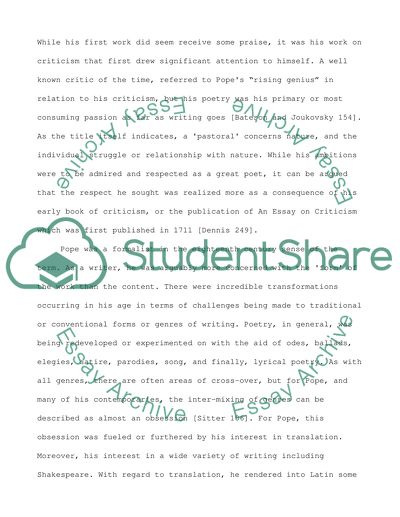Cite this document
(“POPE, ALEXANDER Research Paper Example | Topics and Well Written Essays - 2500 words”, n.d.)
Retrieved from https://studentshare.org/family-consumer-science/1421360-pope-alexander
Retrieved from https://studentshare.org/family-consumer-science/1421360-pope-alexander
(POPE, ALEXANDER Research Paper Example | Topics and Well Written Essays - 2500 Words)
https://studentshare.org/family-consumer-science/1421360-pope-alexander.
https://studentshare.org/family-consumer-science/1421360-pope-alexander.
“POPE, ALEXANDER Research Paper Example | Topics and Well Written Essays - 2500 Words”, n.d. https://studentshare.org/family-consumer-science/1421360-pope-alexander.


